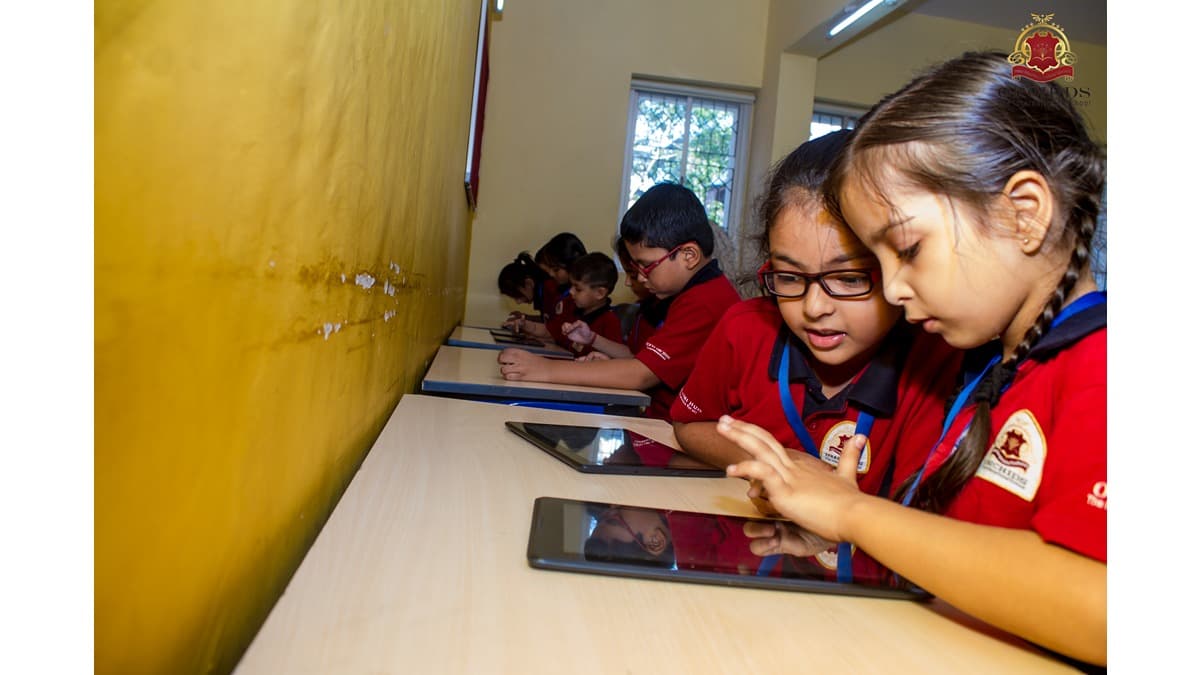The Positive Impacts of the Internet on Student Learning
By Harshitha |
Date 05-09-2023

Admissions Open for
In the sprawling landscape of education, the emergence of the Internet has ignited a transformative revolution, forever altering the way students learn and acquire knowledge. With the digital age sweeping across the globe, India’s educational sector has been profoundly impacted by the positive influences of the Internet on student learning. This paradigm shift has ushered in a new era of educational possibilities, reshaping traditional classrooms and empowering learners like never before.
One of the most remarkable advantages of the Internet in education is the unparalleled access to a vast repository of information. With just a few clicks, students can tap into a wealth of knowledge from around the world. Online libraries, academic journals, and educational websites provide an expansive array of resources that cater to various learning styles and interests. This instant availability of information not only enhances the depth of learning but also nurtures critical thinking and research skills. Students are now empowered to explore beyond the confines of textbooks, fostering a culture of curiosity and self-directed learning.
The Internet has also fostered a culture of collaborative learning that transcends geographical boundaries. Virtual classrooms, discussion forums, and online study groups enable students to interact with peers and educators from different corners of the globe. This diversity of perspectives enriches the learning experience, offering insights into different cultures, ideas, and viewpoints. Additionally, online collaboration nurtures essential skills such as communication, teamwork, and digital etiquette, which are invaluable in the modern interconnected world.
Incorporating multimedia and interactive elements into education has been another transformative outcome of the Internet’s influence. Visual aids, videos, simulations, and interactive quizzes engage students in ways that traditional lectures often cannot. Complex concepts become more accessible and engaging, catering to a variety of learning preferences. Moreover, online platforms offer personalized learning experiences through adaptive algorithms that tailor content to individual student needs. This level of customization ensures that each student can progress at their own pace, reinforcing understanding and boosting confidence.
However, it’s essential to acknowledge the need for digital literacy and responsible online behavior. While the Internet offers a treasure trove of information, it also presents challenges such as misinformation and distraction. Educators play a pivotal role in guiding students to navigate the digital landscape critically. Teaching students how to discern credible sources, fact-check information, and practice responsible online conduct equips them with skills that are crucial in the digital age.
In conclusion, the positive impacts of the Internet on student learning have redefined the educational landscape in India and beyond. The vast access to information, opportunities for global collaboration, interactive learning experiences, and the cultivation of digital literacy skills are reshaping how students engage with knowledge. As technology continues to evolve, educators and policymakers must harness the potential of the Internet to create a well-rounded and future-ready education system. By embracing these positive influences, India’s students are better equipped to thrive in an increasingly digital and interconnected world.
CBSE Schools In Popular Cities
- CBSE Schools in Bangalore
- CBSE Schools in Mumbai
- CBSE Schools in Pune
- CBSE Schools in Hyderabad
- CBSE Schools in Chennai
- CBSE Schools in Gurgaon
- CBSE Schools in Kolkata
- CBSE Schools in Indore
- CBSE Schools in Sonipat
- CBSE Schools in Delhi
- CBSE Schools in Rohtak
- CBSE Schools in Bhopal
- CBSE Schools in Aurangabad
- CBSE Schools in Jabalpur
- CBSE Schools in Jaipur
- CBSE Schools in Jodhpur
- CBSE Schools in Nagpur
- CBSE Schools in Ahmednagar
- CBSE School In Tumkur

Call Us to know more about Orchids
Swipe Up

















